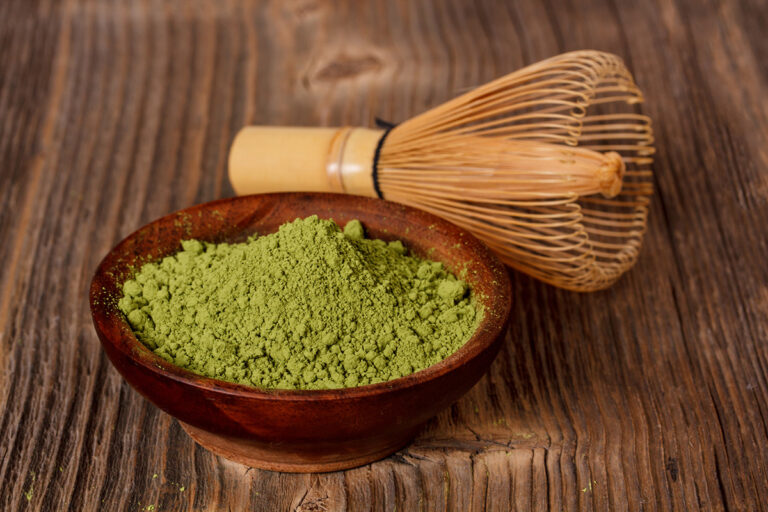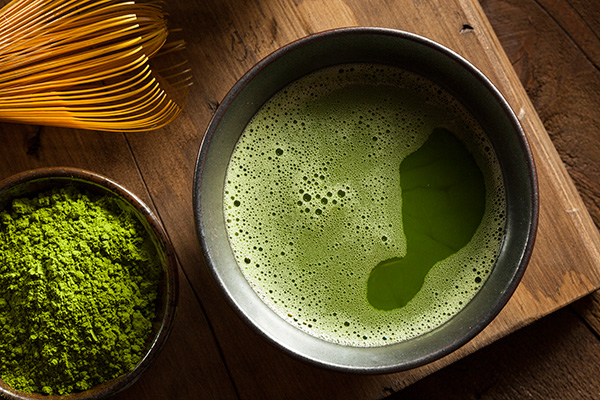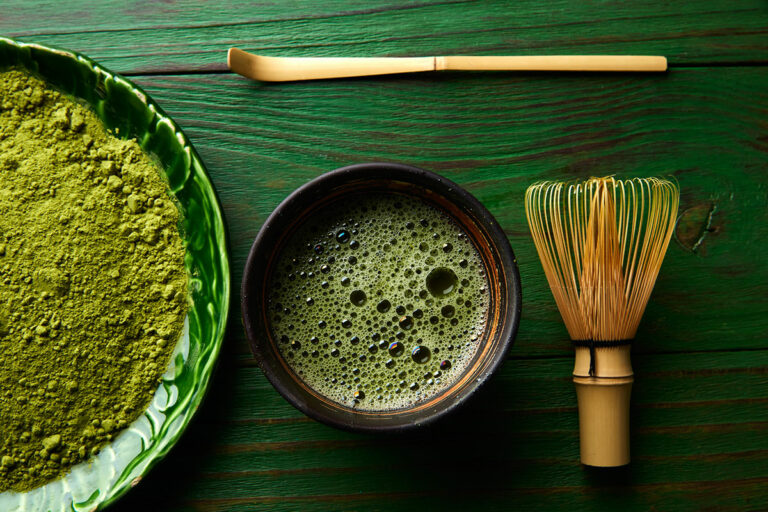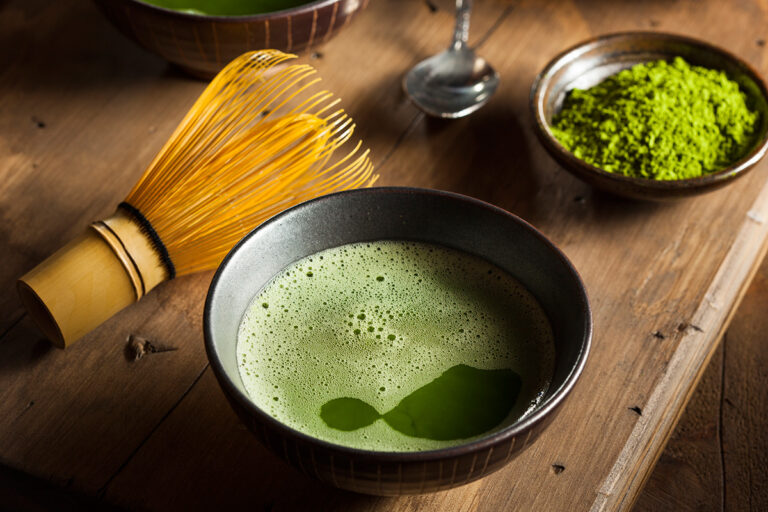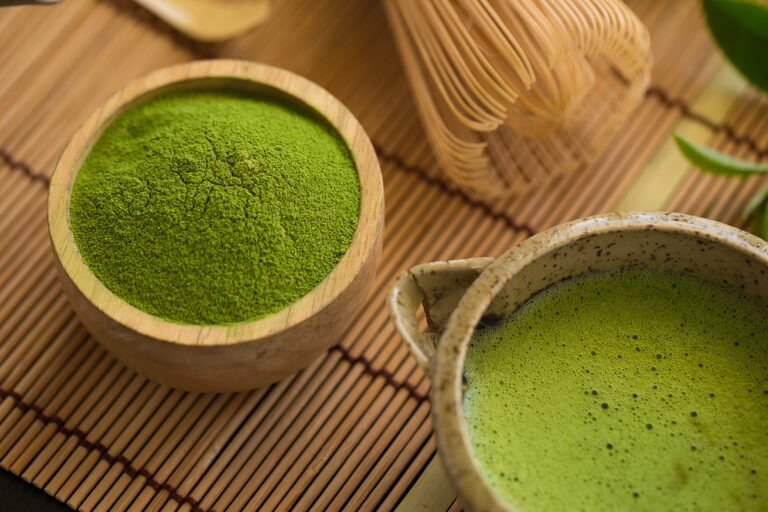Why Does Matcha Taste Like Fish?
Matcha has gained popularity for its numerous health benefits and vibrant green color. However, some people find that their matcha has a fishy taste. Have you ever wondered why this happens? If so, you’re in the right place.
We’ll explore the odd flavor, how to fix it, and how high-quality matcha should taste.
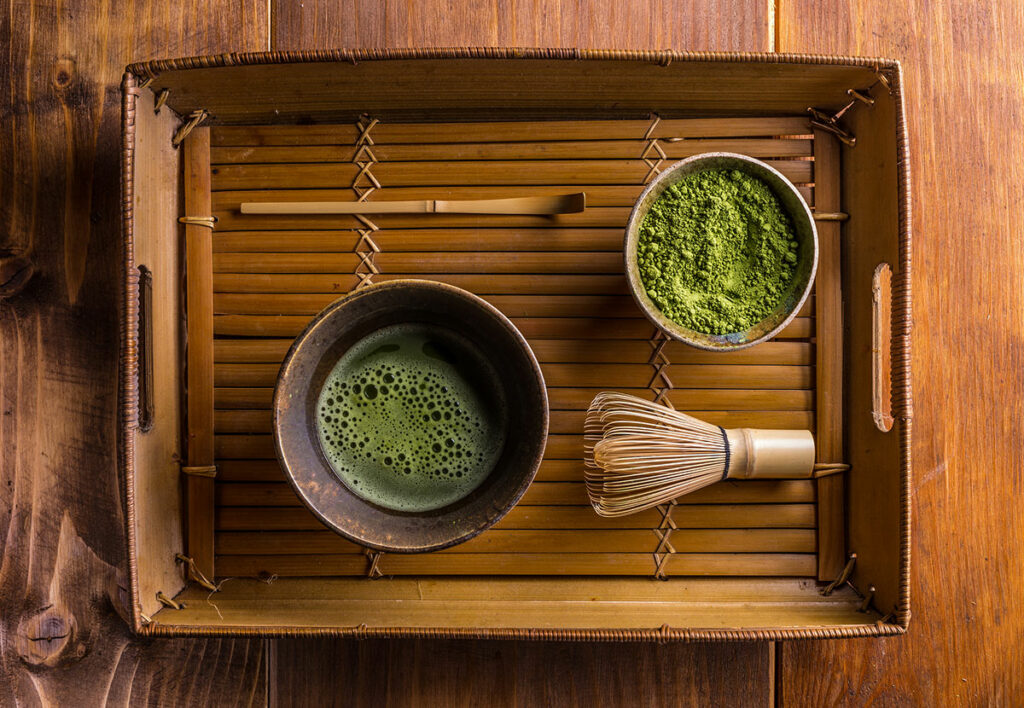
Why Does Matcha Taste Like Fish?
The fishy taste in matcha can be attributed to two primary factors: the presence of amino acids and poor-quality matcha. L-theanine, an amino acid in green tea, may produce a seaweed or fish-like taste. However, high-quality matcha should not taste fishy. If you’re experiencing a fishy taste, you’re likely using a lower-quality matcha.
Poor-quality matcha is often made from older tea leaves, which can develop a fishy taste. It may also be improperly stored, leading to an altered flavor profile. In addition, poor manufacturing practices can contribute to an undesirable taste.
What Is Matcha Supposed to Taste Like?
High-quality matcha should have a rich, creamy texture and a vibrant green color. The taste should blend sweetness, umami, and slight bitterness. It should not taste fishy or seaweed-like. The taste should be smooth, and the aroma should be fresh, reminiscent of newly sprouted grass.
What Can You Do About the Fishy Taste of Matcha?
If your matcha has a fishy taste, don’t worry; there are ways to improve it:
- Invest in higher-quality matcha: Purchase ceremonial-grade matcha, which is made from younger tea leaves and is less likely to have a fishy taste.
- Store matcha properly: Keep your matcha in a cool, dark place, away from heat, light, and moisture. This will help preserve its flavor.
- Prepare matcha correctly: Use a bamboo whisk to create a frothy texture. To avoid bitterness, use water slightly below boiling (160-175°F or 70-80°C).
- Add flavors: If you still find the taste of matcha to be fishy, try adding flavors like vanilla, almond milk, or honey to mask the taste.
Where to Buy High-Quality Matcha
If your matcha doesn’t taste the way you expected, consider buying ceremonial-grade matcha for your next batch. Here is the best ceremonial-grade matcha that we have tested.
Conclusion
While matcha can occasionally taste fishy due to its amino acid content or poor quality, there are ways to prevent and address this issue. By investing in higher-quality matcha, storing it properly, and preparing it correctly, you can enjoy matcha’s delightful, complex taste.
FAQ
Does Matcha Tea Have Seaweed in It?
No, matcha tea does not contain seaweed. However, the amino acid L-theanine in matcha may yield a seaweed or fish-like taste.
Do All Green Teas Taste Like Fish?
While other shade-grown green teas may have a high level of L-theanine, similar to matcha, green teas do not taste like fish. The fishy taste is more commonly associated with poor-quality matcha or improper storage. Other green teas like sencha, gyokuro, and bancha have distinct flavor profiles that do not taste fishy.
Can Matcha Taste Like Fish Because It Has Expired?
Matcha should not taste like fish, even if it has expired. However, if it’s not stored properly or is of poor quality, it may develop an unpleasant taste.

